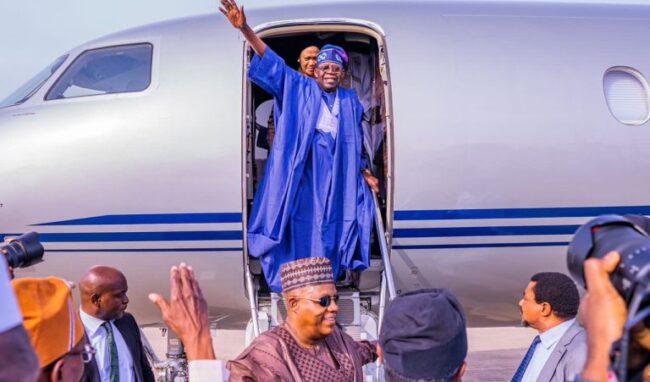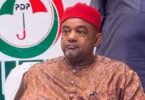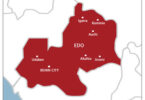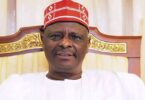President Bola Tinubu’s recent short trip to Equatorial Guinea is set to spark a new wave of economic growth between Nigeria and Equatorial Guinea.
The trip, which lasted only a few days, brought about several key agreements that promise to enhance cooperation and development in both West African nations.
One of the most significant outcomes of the trip was the reactivation of the Joint National Commission, a cooperative body that had fallen into disuse over the years.
The revitalisation of this commission is expected to foster stronger bilateral relations and open new avenues for collaboration.
In a major step forward for the energy sector, Nigeria signed a groundbreaking gas pipeline deal with Equatorial Guinea.
This agreement will enable Nigeria to transport gas to Equatorial Guinea, meeting the latter’s demand of 4 million tonnes per year. The deal underscores the growing importance of gas in regional development and energy security.
The issue of oil theft, a long-standing challenge in the Gulf of Guinea, was also addressed during the trip. Both countries agreed to enhance security in the region to combat piracy and protect critical oil routes.
This renewed commitment to safeguarding the Gulf of Guinea is expected to significantly reduce incidents of oil theft.
Additionally, migration policies were a key topic of discussion. Nigeria and Equatorial Guinea agreed to resolve visa issues to facilitate the easier movement of goods, services, and people between the two countries.
This agreement is seen as a crucial step in boosting trade and economic integration in the region.
President Tinubu’s trip to Equatorial Guinea may have been brief, but the outcomes are poised to have a lasting impact on the economic and security landscape of West Africa.
During a recent international trip, several ministers accompanying President Bola Tinubu highlighted key developments in their respective sectors, shedding light on the President’s strategic focus and the nation’s progress.
Hon. Ekperipo Ekpo, Minister of State for Petroleum Resources (Gas), emphasized the President’s commitment to advancing Nigeria’s gas sector.
“In terms of Liquefied Natural Gas (LNG), I have been informed that they will need about four million tonnes of gas per year, and the methanol plant will need about one billion cubic feet per day. So, it is a good one, and you know our President is really enthusiastic about gas. Anything gas, he will go into it,” Ekpo stated, reflecting on the discussions held during the trip.
Dr. Jamila Ibrahim, Minister of Youths, spoke about the importance of youth development and the steps being taken to solidify international partnerships in this area.
“We are in the process of arriving at a treaty, an agreement on youth development with my counterpart, which we will be finalising through the Joint National Commission.
The President believes that only when we’re strong as a continent, and all the leaders come together, that we can harness the potential of our young people across the continent,” she said.
ALSO READ: Isa Yuguda hails Tinubu over DSS DG’s appointment
Minister of Interior, Olubunmi Tunji Ojo, highlighted the President’s role in facilitating easier movement across African countries, particularly through addressing visa issues.
“The president is a rallying point, a fulcrum that holds a pivotal position in resolving visa issues for easier movement between African countries. As the Minister of Interior, he has given me the matching orders to look at that in line with the act of reciprocity,” Ojo revealed.
Ambassador Yusuf Tuggar, Minister of Foreign Affairs, reflected on Nigeria’s improved maritime security and the importance of international cooperation in this area.
“If you remember, in 2002 there was a vessel involved in illicit activities in Nigeria, and ran to Equatorial Guinea. The authorities in Equatorial Guinea then arrested that vessel and handed over the crude oil in it to Nigeria. So, that has set a precedence.
It’s part of the reasons why since 2022 Nigeria has not recorded any piracy incident within its territorial waters. This is because the pirates know that if they do anything and run to a place like Equatorial Guinea, they’re going to be sent back to Nigeria for trial,” Tuggar explained.
These statements underscore President Tinubu’s proactive approach to governance and his administration’s ongoing efforts to strengthen Nigeria’s position both regionally and globally.







